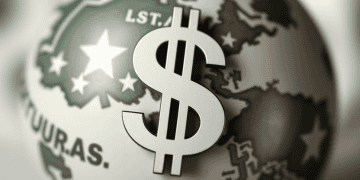LONDON – The Bank for International Settlements (BIS) has raised concerns about the potential for global stagflation if trade tariffs proposed by incoming U.S. President Donald Trump result in continued increases in the value of the U.S. dollar.
Stagflation, characterized by rising inflation alongside weak economic growth, poses significant challenges for consumers and businesses. The BIS report, released shortly before Trump assumes office, suggests that while the global economy may be on course for a “soft landing,” there are growing uncertainties related to new economic challenges.
The report points to rising expectations of a scenario in which the U.S. experiences strong economic growth and persistent inflation. This could limit the scope for the U.S. and other countries to reduce interest rates in the near future.
Global trade, the BIS cautions, may face increased friction and fragmentation, with the possibility of a widespread trade conflict involving the U.S. and other nations becoming a tangible risk.
Should the U.S. opt to maintain or raise its interest rates while other nations are compelled to lower theirs, the result could be significant shifts in capital flows and exchange rates. A stronger U.S. dollar, driven by higher interest rates, a robust U.S. economy, and political uncertainty, could impact the global economy.
A rising dollar tends to increase inflation outside the U.S. by raising import prices, particularly affecting developing countries. It also tightens financial conditions globally by increasing borrowing costs, which could reduce economic activity, especially in countries with weaker economic fundamentals and vulnerable fiscal positions, the BIS noted.
Discover the latest in supply chain logistics news on The Supply Chain Report. Free international trade tools are available at ADAMftd.com.
#GlobalTrade #StagflationRisk #EconomicOutlook #TariffImpact #DollarStrength















